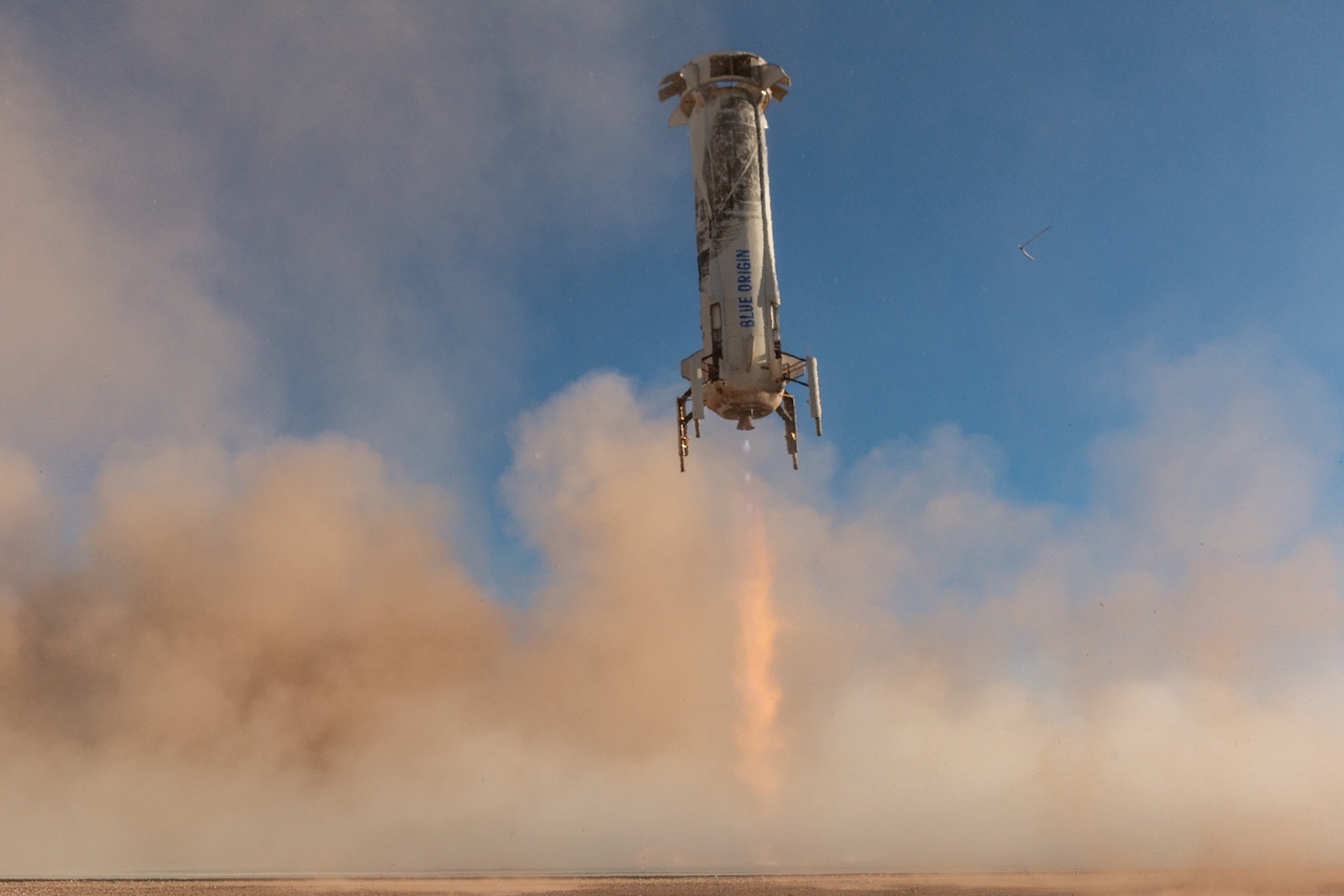
Tech
Space Dildoing with William Shatner
Overpaid breakfast hosts on an Australian network sniggered, wondered, and pondered. Why is that top throbbed Blue Origin capsule heading to space shaped that way? Is Jeff Bezos’s effort nothing more than a phallic spurt into the heavens? The implications are flowing: Can he hold it? Will he come in the appropriate atmospheric strata?
Giggles aside, the scandalous venture that is space tourism is a perfect example of why harsh penalties might be leveled on certain capitalists who think that climate change and pandemics are the sorts of things best left to other people. You do not have to be puritanical to turn your nose up at this.
Bezos, Elon Musk, and Richard Branson have called their orbital ventures all manner of things: space utilisation, desperate innovation, new frontier fumbling, human beings finding themselves in adolescent rediscovery. It is little different to the embarkations from Spain and Portugal in the late fifteenth century for what would be, inaccurately and disturbingly termed, the New World.
The latest privatisation and capitalisation of space, marked by this new phase of tourism, is something to lament. The lamentation is less for the talent and genius of those who work in the industry and sweat over designs, worrying about atmospheric conditions than crude moneyed individuals who play the role of competitive space buccaneers. While members of the British Royal Family are not exactly always sensible students of society, Prince William, the Duke of Cambridge, was not off the mark in remarking that, “We need some of the world’s greatest brains and minds fixed on trying to repair this planet, not trying to find the next place to go and live.”
Aren’t we all adorbs! 😘🚀 pic.twitter.com/rYyEzOXfy5
— William Shatner (@WilliamShatner) October 11, 2021
The space billionaires have engaged in their own emotional arms race, seeking to gull millions on Earth that they are advancing the course of humanity while not exactly being forthcoming about environmental costs. The latter is of particular concern, given that rocket emissions can cause stratospheric ozone depletion and a change in what a co-authored paper describes as “the atmosphere’s net radiative balance.” Of the three, Bezos has proven the most brazen in blasting tactically picked souls into space – if only for a few minutes. This is where William Shatner, who journeyed on the New Shepard NS-18 this month, enters the picture.
A character like Shatner serves several purposes. There is the sci-fi angle: Captain James T. Kirk of original Star Trek fame. There is the matter of age: a resilient, long-lasting ninety-years. To this can be added Bezos’s own twisted affection for the series.
Perhaps it is telling that one character he particularly enjoyed playing as a child was the ship’s computer. Amazon’s voice-activated, Orwellian speaker called Alexa is much in that mould. As David Limp, Amazon’s Senior Vice President of Design and Services explained in 2017 at The Wired Conference, the Star Trek computer was Alexa’s “north star.” “The bright light, the shining light that’s still many years away, many decades away, is to recreate the Star Trek computer.” The goal of Amazon was for a person anywhere on the equivalent of the Starship Enterprise to simply “say the word ‘computer’ and it would wake up and answer any question.”
Shatner was brought up to give the impression that life imitates very bad art. And, just to prove the point, he was left to move off-script during his flight, which is ill-advised for most actors. It did not matter. At the age of ninety, you can be forgiven for many things. The Los Angeles Times was good enough to bore us with his words. “Was that death?” he inquired about space, not exactly selling the glory of the moment. “Is that the way death is? Whoop and it’s gone. Jesus. It was so moving to me.”
Shatner’s words to Bezos also shone with radiant gratitude. “You have done something,” he exclaimed to the billionaire on emerging from the capsule. “What you have given me is the most profound experience.” He hoped to “never recover from this.”
Nor, it would seem, would Earth, though Shatner is not troubled. For Prince William, he had a few gentle words of condescension. “He’s a lovely, gentle, educated man, but he’s got the wrong idea.” It was wrong, for instance, to look at space tourism as a costly venture “that consumed all that…energy.”
In a long line of thinkers who have come before him, the actor is of the view that problems, notably polluting industries, can be relocated to junk some other world. “We’ve got all the technology, all the rockets, to send the things up there. You can build a base 250, 280 miles above the Earth and send that power down here and they catch it and they then use it and it’s there.” The capitalist plug is never far away. “All it needs is…somebody as rich as Jeff Bezos [to say], ‘Let’s go up there.’”
Shatner’s worldview is shallow enough to veer into useful idiot territory. Getting to space was merely a matter of being “practical” – an easy matter if you have Bezos bankrolling things. “So fix some of the stuff down here, but we can curl your hair and put lotion on your face at the same time.” Let the headshaking begin.

